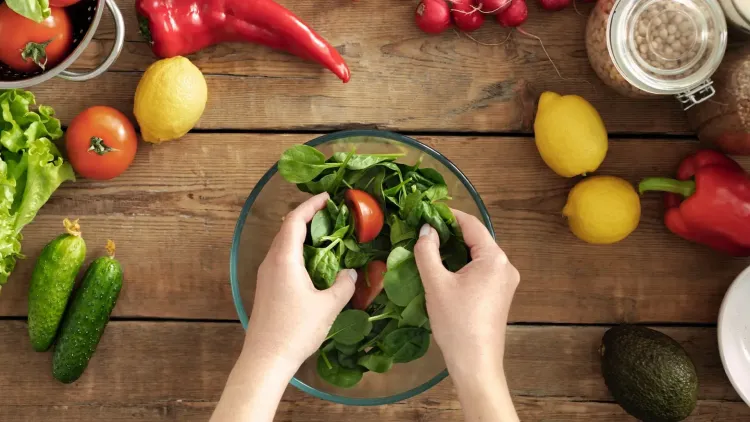Can a Bowl of Spinach, Kale, and Broccoli Enhance Heart Health in Older Women?

Synopsis
Key Takeaways
- Leafy greens like spinach, kale, and broccoli are rich in Vitamin K1.
- Higher intakes of Vitamin K1 may reduce the risk of atherosclerotic vascular diseases (ASVD).
- These vegetables can help improve musculoskeletal health.
- Incorporating a cup and a half of these greens into daily meals is recommended.
- Research indicates a 30% increase in Vitamin K1 intake correlates with lower ASVD risk.
New Delhi, June 28 (NationPress) Consuming a bowl of leafy green and cruciferous vegetables such as spinach, kale, and broccoli may significantly reduce the risk of heart attack and stroke, especially among older women.
A collaborative study by researchers from Edith Cowan University (ECU), The University of Western Australia, and the Danish Cancer Institute discovered that these nutrient-rich greens, high in Vitamin K1, can help mitigate atherosclerotic vascular diseases (ASVDs).
ASVD represents a category of cardiovascular diseases that are the primary cause of mortality globally, mainly due to heart attacks and strokes. This condition leads to plaque accumulation in the arteries, which may result in severe cardiovascular complications.
The study, which involved 1,436 elderly women, revealed that an increased intake of Vitamin K1 is linked with a lowered risk of ASVD.
Moreover, Vitamin K is also deemed beneficial for musculoskeletal health, positively influencing bone strength.
Interestingly, those with higher Vitamin K1 consumption exhibited reduced thickening of blood vessels in the neck—a clear indicator of atherosclerosis.
“Leafy greens and cruciferous vegetables such as spinach, kale, and broccoli are rich in Vitamin K1, which may aid in preventing the vascular calcification associated with cardiovascular diseases. The excellent news is that these vegetables can easily be added to your daily diet,” stated Montana Dupuy from ECU. Dr. Marc Sim, ECU Senior Research Fellow, emphasized that just a cup and a half of these vegetables can effectively boost our daily Vitamin K intake and potentially decrease our cardiovascular disease risk.
“Our findings indicate that women who had approximately 30% greater intakes of Vitamin K1 experienced a reduced long-term risk of ASVD,” he added.
As this research offers crucial insights for future investigations, the team is currently developing new food products enriched with leafy greens rich in Vitamin K1, tailored for communities with specific nutritional needs, such as residents in aged care facilities.









